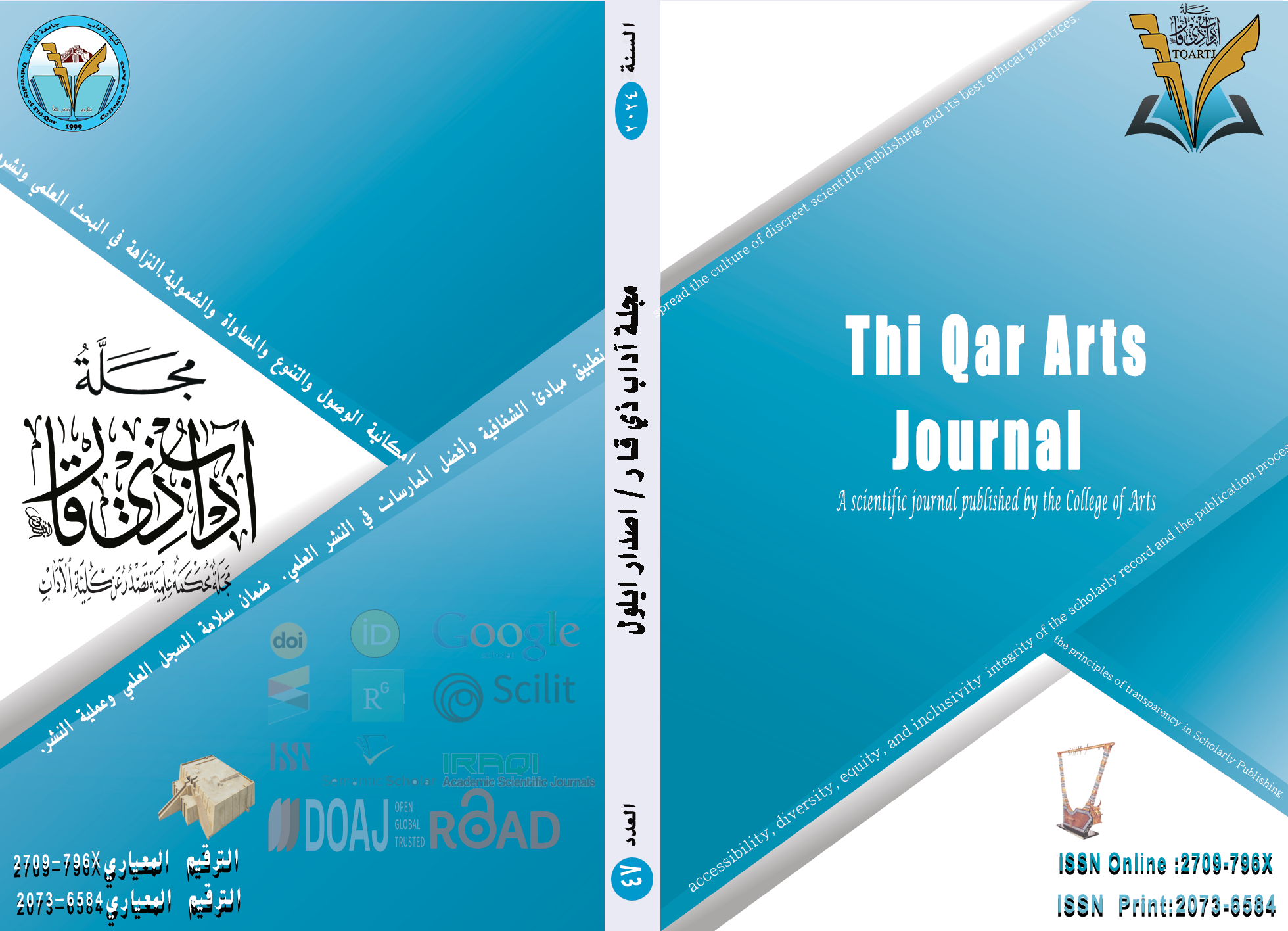The Reality of Field Training Programs for Students of Media and Communication Departments in Saudi Universities: The Department of Media and Communication at King Khalid University as a Model. A Descriptive Study on a Sample of Trainers in Training Entities in Governmental and Private Sectors in the Asir Region, Saudi Arabia"
DOI:
https://doi.org/10.32792/tqartj.v10i47.648Keywords:
Training, Media, Communication, Media Training, Public Relations, Journalism, Radio, and Television.Abstract
This study aims to identify the reality of training for students of media and communication departments in the Kingdom of Saudi Arabia by studying the reality of training programs for students of the media and communication department at King Khalid University. From the point of view of those responsible for training in government and private sector institutions in the Asir region; In order to determine the suitability of training programs for department students; In terms of content, training methods, and program evaluation tools for trainees’ performance, the study relied on the survey method through a deliberate sample with (40) individuals, males and females, from the study population, which includes workers in public relations departments, newspapers, radio, and television in training agencies in the Asir region. The study concluded that: these institutions concerned with preparing training programs that respond to the real needs of the students, also they combine theoretical information and practical applications in the field in accordance with the abilities, skills and knowledge level of students, and supplement their deficiency through their educational programs in public relations, advertising, journalism, electronic editing, radio and television which adds new art and skills that benefit them in their future. The study revealed that; these training institutions use most of the (11) methods of presenting the training course, including: lectures, discussions, seminars, conferences, case studies, workshops, role-plays, field training, on-site training, in addition to multimedia. Also, the study explains that these institutions used (5) tools to evaluate the performance of the trainees; including: (the attendance, participating, adherence to instructions, integration with work team, and measuring knowledge and skill through assignments and tasks).
Downloads
References
1. Abu Hasira, Shawq, and Al-Nawajha, Alaa, 2007, The Reality of Training Programs for Palestinian Journalists: A Field Study, Published Master’s Thesis, Islamic University, Gaza, Palestine.
2. Bilal Khalaf Al-Sakarneh, 2007, Modern Trends in Training, Jordan, Dar Al-Masri for Publishing and Distribution.
3. Hassan, Ashraf, 2011, The Reality and Future of Media Education and Training in the Arab World: A Case Study on the Egyptian Experience, Egyptian Journal of Public Opinion Research, Vol. 6, Issue 2, January/June 2005, Egyptian Journal of Media Research, Arab Republic of Egypt.
4. Hijab, Mohamed Munir, 2002, Fundamentals of Media and Social Research, 2nd edition, Cairo, Dar Al-Kutub.
5. Hassan Ibrahim Maki, 2005, Media Studies, Kuwait, Publications of Kuwait University.
6. Khudair Shaaban, 2007, Dictionary of Media Terms, Beirut, Lebanon, Dar Al-Lisan Al-Arabi.
7. Khaled Abdul Rahman Ahlyeen, 2005, Human Resources Management, Jordan, Dar Wael for Publishing and Distribution.
8. Issam Suleiman Al-Mousa, 2017, Introduction to Mass Communication, Jordan, Dar Ethraa for Publishing and Distribution.
9. Amer Khudair, Hamid Kbeisi, 2017, Administrative Training: A Contemporary Vision for the 21st Century, Jordan, Academics for Publishing and Distribution.
10. Atta Allah Ahmed Taysir Al-Shara’a, 2014, Theoretical and Practical Training Management, Jordan, Dar Hamed for Publishing and Distribution.
11. Ammar Bin Aishi, 2017, Training Trends and Evaluation of Individuals, Jordan, Dar Osama for Publishing and Distribution.
12. Faisal Ahmed Al-Shamiri, 2020, The Reality of Training and Academic Qualification in the Field of Media: A Case Study on the Media Department at Umm Al-Qura University in Mecca, Journal of Media Research and Communication Sciences, a specialized scientific journal in media research (Journalism - Radio and Television - Public Relations and Advertising), a regular quarterly scientific journal issued by Al-Jazeera Institute for Media and Communication Sciences, Sudan.
13. Cladis Saadeh, 2011, Information Awareness in the Academic Field: A Case Study of the Lebanese University, Journal of Communication and Development, Issue 2, Lebanon, Dar Al-Nahda Al-Arabiya.
14. Mohamed Faisal Al-Shaibi, 2016, Organizing the Media Training Sector in Palestine, 1st edition, Birzeit University, Media Development Center, Palestine, Media Research and Policy Series.
15. Mohamed Abdul Hamid, 2004, Research in Media Studies, Cairo, Alam Al-Kutub.
16. Naseem Mohamed Al-Twaisi, 2004, Quality of Media Training in Jordan, Jordanian Journal of Social Sciences, Jordan, Jordanian Journal of Social Sciences.
17. Nasr Al-Din Abdul Qadir Othman, 2013, Media Training and Its Impact on Building Media Personality: A Survey Study on a Sample of Arab Media Professionals from January 2012 - June 2012, Journal of Omdurman Islamic University.
18. Daniels, Sharon, 2004, Employee Training: A Strategic Approach to Better Return on Investment, Journal of Business Strategy, Vol. 24, Issue 5.
Downloads
Published
License
Copyright (c) 2024 Al-Qahtani

This work is licensed under a Creative Commons Attribution 4.0 International License.
The journal applies the license of CC BY (a Creative Commons Attribution International license). This license allows authors to keep ownership of the copyright of their papers. But this license permits any user to download, print out, extract, reuse, archive, and distribute the article, so long as appropriate credit is given to the authors and the source of the work. The license ensures that the article will be available as widely as possible and that the article can be included in any scientific archive.



















